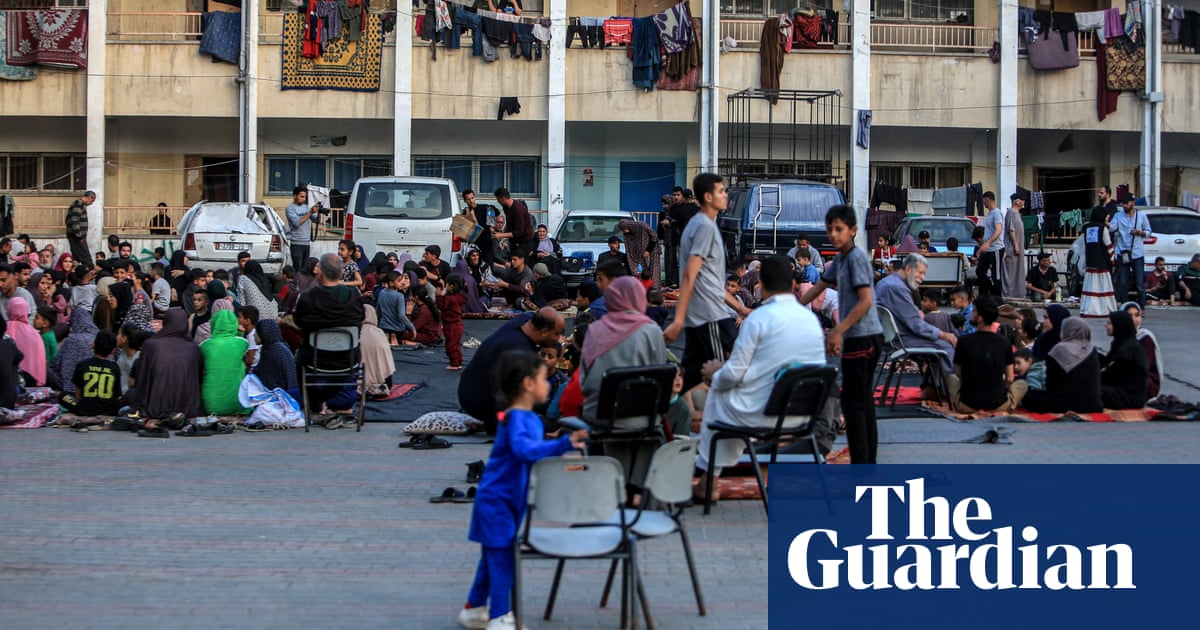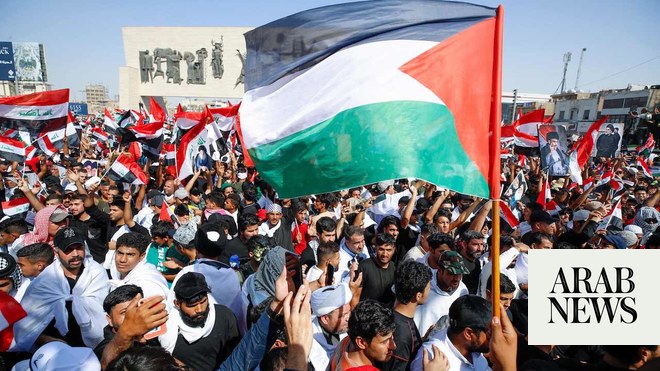
Palestinians in the Gaza Strip buried their dead on Saturday a day after a major demonstration led to clashes with Israeli forces that left 16 dead.
Friday marked the bloodiest day in the coastal strip since the 2015 Israeli offensive against it.
Calls have been made to avenge the dead from Friday’s protests, but only a few hundred demonstrators returned to tents erected at different sites near the Gaza Strips border with Israel to resume rallies planned to last six weeks in the blockaded enclave.
Gazas health ministry said 15 people suffered wounds that were not life-threatening in low-level clashes along the border on Saturday.
Thousands attended funerals for 14 of those killed -- two were buried on Friday -- with mourners holding Palestinian flags and some chanting "revenge" and firing into the air.
The armed wing of Hamas said five of those killed were its members who were participating "in popular events side-by-side with their people."
A general strike was being held in both the Gaza Strip and the occupied West Bank.
Minor clashes broke out between Israeli forces and Palestinians in Hebron, while a small protest was held in Nablus, both in the West Bank.
In addition to the 16 Palestinians killed, more than 1,400 were also wounded Friday, 758 of them by live fire, with the remainder hurt by rubber bullets and tear gas inhalation, according to the Gazan health ministry.
Israel defended its soldiers actions, when troops opened fire on Palestinians who strayed from the main protest camp attended by tens of thousands and approached the heavily fortified fence cutting off the Gaza Strip.
The Israeli military says it opened fire only when necessary against those throwing stones and firebombs or rolling tires at soldiers.
It said there were attempts to damage the fence and infiltrate Israel, while alleging there was also an attempted gun attack against soldiers along the border. No casualties were reported among Israelis.
Palestinians accused Israel of using disproportionate force, saying its soldiers opened fire on protesters who did not pose a threat, while human rights groups questioned Israels use of live fire.
UN chief Antonio Guterres called for an "independent and transparent investigation" and European Union diplomatic chief Federica Mogherini followed suit, calling in a statement for a probe into Israels use of live ammunition.
Israeli Defense Minister Avigdor Lieberman issued a scornful rejection of the demands.
"I do not understand the chorus of hypocrites who want a commission of inquiry," he posted in Hebrew on his Twitter account.
Palestinian President Mahmoud Abbas declared Saturday a day of national mourning and in a speech said he held Israel fully responsible for the deaths.
His spokesman on Saturday called on the United States at the UN Security Council to not provide "cover for Israel to continue its aggression against the Palestinian people."
Human Rights Watch criticized Israels actions.
"Israeli allegations of violence by some protesters do not change the fact that using lethal force is banned by international law except to meet an imminent threat to life," the New York-based group said, calling the number of killed and wounded "shocking."
An Israeli military spokesman said Fridays events were "not a protest demonstration" but "organized terrorist activity" by Hamas, which has fought three wars with Israel since 2008.
The six-week protest is in support of Palestinian refugees and the timetable holds significance for a range of reasons that have added to tensions.
It began on Land Day, when Palestinians commemorate the killing of six unarmed Arab protesters in Israel in 1976, and as Jewish Israelis readied to observe the Passover holiday, which started at sundown on Friday.
Protests will continue until the United States opens its new Jerusalem embassy around May 14, a move that has provoked deep anger among the Palestinians, who see the citys annexed eastern sector as the capital of their future state.
May 14 will also mark 70 years since the creation of Israel, while Palestinians will mark what they call the Nakba, or "catastrophe," the following day.
The Nakba commemorates the more than 700,000 Palestinians who either fled or were expelled from their homes in the war surrounding Israels creation in 1948.
Israel had deployed troop reinforcements along the border, including more than 100 special forces snipers, saying it would prevent attempts to break through the fence.
Protests along the border are common, often culminating in young Palestinian men throwing stones at Israeli soldiers who respond with tear gas along with rubber and live bullets.
But the "March of Return" protest that began on Friday is on a larger scale and intended to involve families with women and children camping in tent cities near the border for weeks.
Asmaa al-Katari said she participated in the march despite the risks and would join upcoming protests because "life is difficult here in Gaza and we have nothing to lose."
The history student said she is a descendant of refugees from what is now Israels southern Negev Desert. She said her grandfathers had lived in tents as refugees.
"I want to tell the world that the cause of our grandfathers is not dead," she added.
Gaza resident Ghanem Abdelal, 50, said he hopes the protest "will bring a breakthrough, an improvement, to our life in Gaza."
He had brought his family to a protest tent camp near Gaza City — one of five set up several hundred meters from the border fence — where he distributed water bottles to women and children sitting on a mat.











